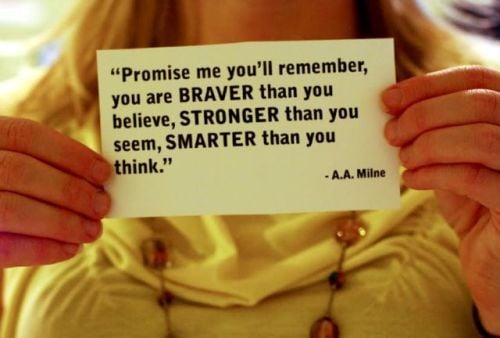FAQs...
Please read this regularly, even if you have prior experience. There are many myths to dispel...
Q: Does it work?
Yes - hypnobirthing dates back to the early 1900s, when British doctor Grantly Dick-Read observed that in the absence of fear, people tend to have much more straightforward, more comfortable and quicker births.
He set out to de-mystify and educate people about birth physiology; the mind-body connection; and introduced families to the simple tools of self-hypnosis, effective breathing and beneficial birth partner support - with great success.
His book 'Childbirth without Fear' was an international bestseller and is still in print today. As the 'father of the natural childbirth movement' his work inspired many others who began their own antenatal education programs.

The benefits of hypnobirthing are now widely accepted, with many hospital trusts offering hypnobirthing awareness training to their staff. The NCT says:
"A systematic review of hypnosis-based interventions during pregnancy found that it improved childbirth experience by reducing fear and pain and enhancing a sense of control. It improved women's emotional experience and outlook towards birth with less anxiety, increased satisfaction, fewer birth interventions, more postnatal wellbeing and a better childbirth experience overall. Other research has found that self-hypnosis promoted 'feelings of calmness, confidence and empowerment." (references)
Feedback indicates that my hypnobirthing families tend to birth quicker and with less medical intervention than the general population, with 100% of respondents recommending my course to others.
"Having attended many hypnobirths at home and in hospital, I believe it is a fantastic method. It not only helps women reduce fear surrounding birth and allows their bodies to work well, but enables them to feel really positive about having their baby" Cornwall midwife
What is hypnosis?
Ever been so absorbed in your thoughts that you can't quite remember some of the journey home?! Hypnosis is a completely natural state of focus, e.g. daydreaming or watching a film. In this focused state, positive suggestions help to reprogram your mind.
Can anyone use hypnosis?
Because it's a natural state of mind, everyone is capable of entering hypnosis if they want to. The more you do it, the better you get at doing it - just like learning any other skill. It's a myth that some people are unable to be hypnotised. However, if you have epilepsy, a heart condition, narcolepsy or asthma you should consult with your doctor first before using hypnotherapy. Never use hypnotherapy whilst operating heavy machinery (e.g. driving!) or under the influence of drugs or alcohol, or if you suffer from psychiatric or psychotic illnesses that distort your sense of reality.
Will I lose control and become a zombie?
No - you are always completely in control. Stage hypnosis can demonstrate the amazing power of suggestion, but the showmanship element makes it seem like something it's not. A person engaging in self-hypnosis may 'come out of it' any time at will, e.g. if your phone rings you can choose whether to answer it.
Will someone sit next to me during the birth, dangling a pocket watch?
Nope! You will use self-hypnosis to take yourself into a deep state of focus during each contraction. Your birth partner(s) may assist you - using certain practiced positive triggers and ensuring your birth environment is private and homely, but essentially you are the one in control. The more you practice, the better you get at going rapidly into hypnosis. With very regular practice this skill becomes more and more automatic, enabling you on the day of the birth to focus, relax your body and breathe effectively.
How do I know it's 'working'?
Everyone experiences hypnosis a bit differently, but as long as you're actively listening to and agreeing with the suggestions, it's sinking in. Every time you enter hypnosis during pregnancy it becomes more natural. As long as you've followed all of the instructions and practiced regularly during pregnancy as recommended, you can trust in your skills during the birth.
It's also normal to have doubts, this just shows that you really care about preparing effectively for your birth...
What if random thoughts pop into my mind?
It's fine - you don't need silence for self-hypnosis. With practice and experience you'll learn to rise above any potential external or internal distractions. Beginners can sometimes feel frustrated if a random thought pops up... the trick is to let that thought pass quickly through your mind, and return your attention to the sound of my voice. Otherwise you may spend all your time saying "shut-up!" to yourself and miss the whole session! Likewise, don't get hung up about any external noises. Just focus on my voice as the most important sound you hear (or indeed imagine any external noises helping you to go even deeper down).
Is hypnosis just relaxation?
No, this is an outdated idea. Evidence finds that hypnosis is a state of deep focus. You can be in hypnosis without feeling relaxed (e.g. watching a horror film). Relaxation is often used to help quieten your mind and enter hypnosis (it's super useful for most of the birth journey) but during transition and 2nd stage you might feel more energised than relaxed... If you're able to keep focused you're in hypnosis, no matter how relaxed you are.
Is it ok to 'drift off'?
It depends... Fine if you 'wake up' at the end when instructed to (this means that your mind is listening). But if you genuinely fall asleep every time you use the MP3s, stop listening to them in bed! Hypnosis is most effective when you're focused and actively listening to the suggestions. Make the time to practise when you're not so tired. Try not to drift off completely. Sleepy-heads may need to try sitting upright or even with their eyes open!
Can I use my tracks to help me get to sleep?
Yes, but make sure you allocate yourself proper 'awake' practise time as well.
I feel more alert than I expected?
Everyone experiences hypnosis a bit differently. Some people feel very aware of their surroundings and can perhaps recall every single word of a session, others say they almost forgot where they were and can't remember absolutely everything. Either example and everything in between is completely normal.
What if I have a medicalised birth?
Self-hypnosis is useful for all sorts of medical procedures. Families can create their special calming 'birth bubble' and utilise the benefits of hypnobirthing, even if anaesthetised or in theatre (relaxing music, nice smells etc). It's so much better to meet your baby whilst feeling as happy, relaxed and positive as possible.
Do you have a 'quick reference guide' for birth partners?
You're a team, birth partners need to put in the time as well! The course is deliberately simple and can be completed in just a few hours, with a few minutes' ongoing practise together each week. Choose your birth partners wisely ~ excellent support is crucial. After a disappointing experience, Isla in Cornwall compiled a handy checklist of jobs for birth partners
What are potential obstacles to using hypnobirthing successfully?
To answer this question you must first consider your own expectations... Do you simply want to feel calmer and more in control? To have a pain-free or orgasmic birth? To cope until an epidural can be set up? Everyone has different goals, and these may change depending on the path your baby's birth takes.
Secondly, whatever your hypnobirth vision is, the biggest potential obstacle happens during pregnancy. Regular practice and rehearsal in the months and weeks leading up to the birth requires effective knowledge AND commitment. A lack of motivation on the part of either a mother and / or birth partner(s) may lessen its effectiveness on the day.
Encountering a health professional who isn't experienced, knowledgeable and confident in supporting natural birth physiology can also be an obstacle. It's well worth discussing your hypnobirthing plan with caregivers around 34-36 weeks to ensure everything runs as smoothly as possible on the day.
Do I need any other books or resources?
No, this is a full hypnobirthing course so everything you need is provided for you. Whilst the various brands have more in common than differences, there's a risk of overload or confusion. For general birth books check out anything by Milli Hill, Rebecca Schiller, Ina May Gaskin, Janet Balaskas, Pam England and Michel Odent.
May I share the audios with others?
No. Access is strictly via direct purchase - nobody else has permission to share my materials. I'm a tiny independent business in a niche yet very competitive market. I earn much less than you think and depend on my income to help support my family. If my fee is unaffordable for your friends, family or clients do request a discount.